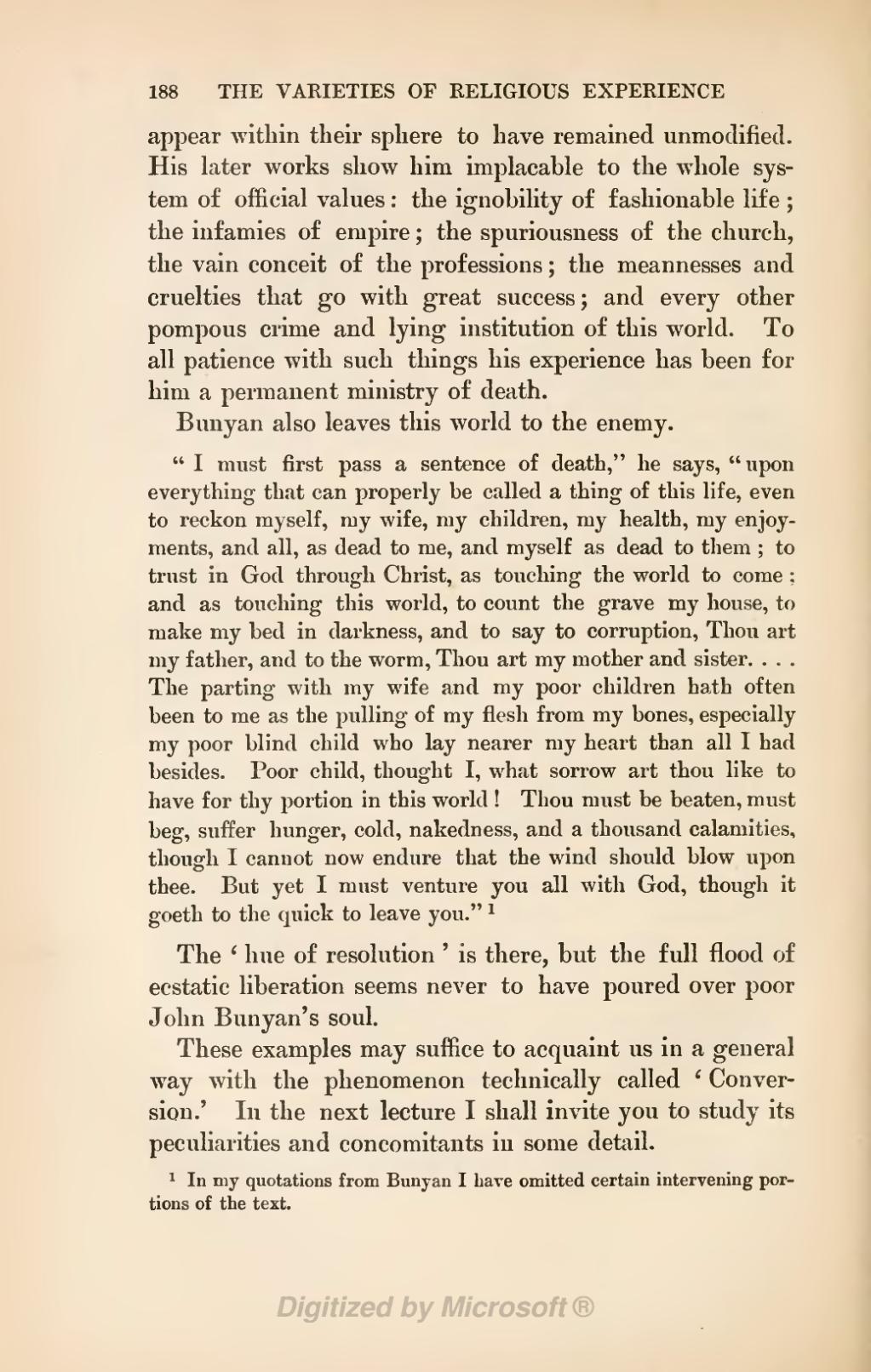appear within their sphere to have remained unmodified. His later works show him implacable to the whole system of official values: the ignobility of fashionable life; the infamies of empire; the spuriousness of the church, the vain conceit of the professions; the meannesses and cruelties that go with great success; and every other pompous crime and lying institution of this world. To all patience with such things his experience has been for him a permanent ministry of death.
Bunyan also leaves this world to the enemy.
"I must first pass a sentence of death," he says, "upon everything that can properly be called a thing of this life, even to reckon myself, my wife, my children, my health, my enjoyments, and all, as dead to me, and myself as dead to them; to trust in God through Christ, as touching the world to come; and as touching this world, to count the grave my house, to make my bed in darkness, and to say to corruption, Thou art my father, and to the worm, Thou art my mother and sister. … The parting with my wife and my poor children hath often been to me as the pulling of my flesh from my bones, especially my poor blind child who lay nearer my heart than all I had besides. Poor child, thought I, what sorrow art thou like to have for thy portion in this world! Thou must be beaten, must beg, suffer hunger, cold, nakedness, and a thousand calamities, though I cannot now endure that the wind should blow upon thee. But yet I must venture you all with God, though it goeth to the quick to leave you."[1]
The 'hue of resolution' is there, but the full flood of ecstatic liberation seems never to have poured over poor John Bunyan's soul.
These examples may suffice to acquaint us in a general way with the phenomenon technically called 'Conversion.' In the next lecture I shall invite you to study its peculiarities and concomitants in some detail.
- ↑ In my quotations from Bunyan I have omitted certain intervening portions of the text.
